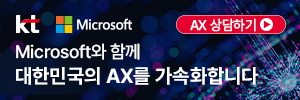Intel's another unfair business practice?
- 가
- 가

By Han Joo-yeob
powerusr@ddaily.co.kr
Intel Corp. is buying market share of the tablet processor market with money.
Intel is offering subsidies to device makers in an attempt to increase sales of its tablet processor Bay Trail. The company covers the cost arising from the subsidies as what it calls ‘contra revenue.’ Intel’s Chief Financial Offer has earlier said the tablet contra revenue would have about a -0.5% impact on Intel's gross margin during the second quarter of this year.
Intel has announced that it would ship 40 million tablet processors this year, which indicates that its subsidy program has worked. Chief Executive Officer Brian Krzanich told the conference call on its first quarter 2014 performance that Intel shipped 5 million tablet chips in the first quarter and is on track to achieve a goal of shipping 40 million tablet chips by the end of this year.
Intel’s subsidies are apparently to make up for the higher cost of Bay Trail tablets, compared with their ARM-based equivalents. Lacking a modem, Bay Trail chips are not suitable for low-lost tablets. For functions like communications, device makers have to purchase additional components as well as printing additional layers onto Bay Trail circuit boards to do what an ARM chip does alone. Intel explains that it provides subsidies to help device makers reduce the ‘bill of materials’ that is caused by the additional work. Intel plans to launch a new low-end processor with a 3G modem, SoFIA, during the last half of this year. But subsidies are likely to continue even after the release of SoFIA.
Market observers said such practice of Intel only follows its past unfair trade practice in the PC market, which led to government investigations. The chipmaker was imposed 26.6 billion in fine by the Fair Trade Commission of Korea for offering rebates in the form of subsidies to PC makers, such as Samsung Electronics and LG Electronics, to prevent the growing market share of AMD PC processors.
But that is not likely to happen this time. A senior research fellow at Insight 64, Nathan Brookwood, said, "They have almost no presence in the tablet market. The FTC (U.S. Federal Trade Commission) isn't about to accuse them of monopolistic practices."
Lee Yu-tae, director of the service industry anti-monopoly department of the Fair Trade Commission of Korea, said, “Such practices by a firm with low market share are considered not likely to interfere with fair competition in the market. In particular, those firms with less than a 10 percent market share are classified as a safe zone.”
According to market research firm Strategy Analytics, Intel Corp. sold 5 million worth of table application processors(APs) last year, ranking fourth in the market with a 7.9 percent share. It follows Apple with 37.3 percent, Qualcomm with 11 percent and Samsung Electronics with 9.7 percent. In the market of smartphone application processors, Intel’s market share remained at a mere 0.2 percent. Commenting on the poor performance, JP Morgan once claimed that Intel should give up its mobile business, which records a chronic deficit.
이 기사와 관련된 기사

당신이 좋아할 만한 뉴스
많이 본 기사
연재기사
실시간 추천 뉴스
-
[이음5G 현황下] 확산 한계치 도달?...“DX본격화 되면, 수요 급증” 전망도
2025-04-04 19:46:29 -
법원, 방통위의 KBS 신임감사 집행정지 신청 ‘기각’
2025-04-04 19:41:00 -
엔시티 위시, 엠넷플러스 '숨바꼭질' 두번째 플레이어로 출격
2025-04-04 17:44:41 -
[DD퇴근길] 윤석열 대통령 파면…ICT·산업계 미칠 영향은?
2025-04-04 17:16:48 -
[윤석열 파면] '탄핵 기념 정식' 인증샷 급증…中 포털서는 실시간 검색어 1위도
2025-04-04 16:49:16


























